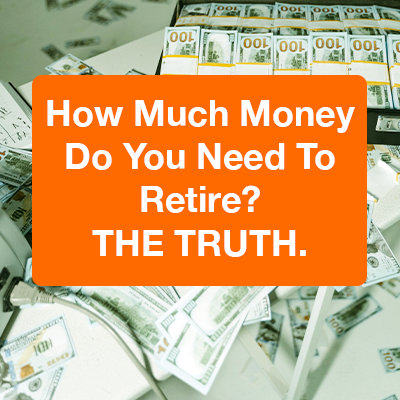In this post, I’ll show you the best way to drive traffic to your e-commerce website so you can make sales without all the unnecessary effort. If you’ve been looking into e-commerce, you may have run across a bunch of gurus (trying to sell you a course) telling you that Facebook Ads are the best way to make money online.
They are wrong. Utterly wrong.
These gurus show you these fancy tricks with Campaign Budget Optimization, ad set duplications, various bidding strategies, copywriting tricks, ad hacks, amongst other circus tricks to try to get you to believe that Facebook Ads will actually work.
And don’t get me wrong, Facebook Ads do work, but they probably won’t work for you if you haven’t had great success yet in your e-commerce journey.
If you haven’t had success yet in e-commerce the last thing you want is unnecessary complication and a bunch of extra variables to deal with. And Facebook is the definition of unnecessary complications and extra variables. In fact, things have only gotten worse over time with Facebook after Zucks was targeted by the senate back in 2018, and have become almost unusable after Apple killed them with iOS 14.
CPMs pre-2018 for me was anywhere from $5-10. After FB banned a bunch of people after the Senate hearings, the CPM was $10-$30. As of this writing (post-iOS 14), CPMs are $50-100.
So Facebook can work for you, if you already have a ton of customer data and if your creatives and customer message is already 100% dialed in.
But if you’re starting out, I recommend using Google Ads to drive traffic to your Shopify website.
Table Of Contents
Why Google Ads Is The Best Way To Drive Traffic To Your Ecom Website And My Struggle With Facebook
So I did social media marketing for clients from 2016 to 2019. All were through Facebook. And with pretty much no success. A lot of this is because I sucked. The other part of this is because Facebook isn’t a great platform for businesses to use, despite what all the gurus want to say.
A lot of the creatives when I was marketing for clients was from the clients themselves, and they were terrible in front of a camera. And I can’t blame them…being in front of the camera isn’t a core part of their business. But not wanting to have to deal with clients anymore, I started doing e-commerce so I can own 100% of the creatives. I rapidly got better over time. My websites looked better after each iteration, and my ads looked more and more polished over time.
Still no results with Facebook.
I tried all kinds of tricks and courses…nope, no results.
I did general stores, niche stores, one-product stores – and after about 10 months, there were some decent breakeven results. And then COVID hit and my results sucked again.
After 3 years of marketing for clients and then 12 months of doing e-commerce for myself, I finally convinced myself to just be open-minded and try another advertising platform: Google Ads.
I didn’t think it would make a difference, and my main objection to switching to Google is because I didn’t want to “learn something new” or have “shiny object syndrome” until I dialed in Facebook. But to be honest, after 3.5 years (there was some overlap of me doing social media marketing for clients and when I did e-commerce), there’s almost nothing I haven’t tried.
In fact, testing out something for a few months with no results (and no signs of potential results) in business should already be considered slow. Staying persistent with an ad platform when it isn’t working for you isn’t “laser focus,” it’s just being stubborn. Trying out and experimenting new things after a reasonable timeframe isn’t having “shiny object syndrome,” it’s adaptation and having the humility to realize things aren’t working out and you have to make a switch.
What I’m trying to say is: staying with Facebook for 4 years without trying out other platforms was flat out stupid for me, and I hope you don’t repeat my mistake.
So, I switched to Google Ads. I took a course on Google Ads and after 1 week of brushing up, I launched a new website and launched a first campaign. Sales came in immediately.
On Facebook, I think it took 3-4 months of testing a plethora of different products before getting my first sale. On Google, it took 2 days for the first sales to start rolling in consistently.
Granted, I was still a beginner so I wasn’t profitable yet in the first 2 days, but it wasn’t a total loss (as is the case with Facebook a lot of times).
Google Ads Pros And Cons
Here, I’ll outline why Google is superior to Facebook in most cases, and where Google falls short and what to watch out for when you finally make the switch to advertise on Google instead of Facebook.
Simplicity (Pro):
The platform is very simple. You have a Merchant Account and an Ad Account that’s hooked up to the Merchant account and you’re pretty much set to advertise. Write a very brief description of your product on your shopping feed and you’re advertising already!
Compare this with all the complex data and business managers to get started on Facebook, and compare this with all the “flexibility” you get with Facebook ads: carousels, images, videos, interest audience, CBO, ADO, and a lot more.
Just in the copy alone, Google doesn’t really allow you to do more than 80-90 characters for your descriptions, so all you can really write in your copy is talk about your product. And in a lot of cases, it’s good enough to make sales.
Complexity is not a good thing for someone trying to test a product. And Facebook is complex.
You already have a business to run, people to hire, product to source, a website to maintain, a supply chain to build…getting relevant traffic on your website should not be some complex dark magic.
Relevant Customers: Main Reason Why Google’s The Best Way To Drive Traffic To Your Website (Pro):
On Facebook, you’re running ads with Facebook’s best guess who the ‘relevant’ customers are. They are generally not super relevant though, and it’s kind of a blackbox. If someone has indicated ‘interest in jewelry’ does that mean they’ll buy your necklaces? Probably not. They might be interested in diamond rings and have 0 interest in necklaces, but Facebook will still waste your money with them.
In most cases, on Facebook you’re showing your brand to a cold audience. Some would argue this is a good thing because “it’s a bigger market than people that already knows about the type of product you’re selling.”
But a cold audience is definitely a terrible thing if you’re just trying to get traction. You don’t need that big of a market to start making sells and to start building a foundation for your business. You just need 100 customers so you can get feedback and iterate from there.
So yeah, Facebook can drive traffic to your ecom website, but it’ll mostly be irrelevant people who just wants to waste your ad money.
Google only shows your ads to people who are searching for the exact keywords that you’re trying to optimize for. Have a necklace store? Just type in “Morganite Necklace For Sale” on your ad, and nobody that’s only looking for rings will click on your store. In other words, people that land on your site are already a warm audience (they already want your product) and so your job of selling them your product is much, much easier.
Having warm customers come in is the single reason why Google is the best way to drive traffic to your ecom website, especially if you’re just starting out.
Costs Less (Major Pro):
Nowadays, Google can be much less expensive than Facebook. I oftentimes get $3-5 CPC on Facebook while I can easily limit Google CPC to $1. This means I’m paying 3-5X more for Facebook ads for a less relevant audience than Google.
This quickly becomes a no-brainer: do I want to pay 3-5X the cost for an audience that probably accidentally stumbled on my website, or do I want to pay 3-5X less for an audience that is already actively searching for the very product I’m trying to sell? Hmm…
On top of that, the pricing for Google makes more sense because its CPC is actually cost per click. If Google shows your ad to a million people and nobody clicks it, you pay $0. If Facebook shows your ad to a million people and nobody clicks it, you’re paying 1000 times the CPM (which nowadays is like 1000×30 = $30K).
Other words, Facebook has no skin in the game and has no incentive for your ads to work. They get paid regardless of whether or not they’re driving traffic to your website. Google doesn’t make money unless someone clicks on your ad, which means they do have skin in the game because they won’t make money unless you get traffic.
Unreasonable Regulations (major con):
The worst part of Google is their vague suspensions of your account. Especially during the run-up to the 2020 election, Google wanted to be very safe and thus suspended a lot of accounts for no apparent reason.
This is completely destructive to a ton of small businesses and is extremely bad practice.
Google’s customer service is serviced by minimally paid Filipino virtual assistants whose job is to copy and paste responses to you. They don’t know anything about their own platform and can only ‘elevate tickets’ for you. It’s obvious they don’t really care about whether you’re selling online or if your business is suspended and that you no longer have any means of creating an income that you need to feed yourself and your family.
Caveat: lately, they’ve been more lax since the elections have been over for 8 months. As an example, they used to require 2 sources of contact information on your page. Now, they’ve loosened it to require only 1 piece of contact info. That said though, come 2024, I’d probably shut down all my ads for the entire year just to avoid random suspensions.
I would say Facebook is a lot better here because if they suspend you, it’s usually for a very concise and clear reason. I’ve been suspended many times on Facebook and always have been able to appeal it and get back to business within a day or 2. It’s just too bad that the “business” is just me burning money with their ad platform though.
Your Customer Doesn’t Care How You Drive Traffic To Your Website
If you’re using Facebook with little to no success, my advice to you is just stop.
Believe me, I had an emotional attachment to Facebook and was stubborn about not switching until I can get the damn ad platform to work.
But what I learned is this: in business, you shouldn’t be emotional (nor stubborn). In business, you either win or you lose. You either hit your profit goals, or you didn’t. Therefore, you should just make the most rational decisions possible to maximize your profits in the shortest amount of time.
So sure, you could turn a measly profit from Facebook if you spent 500 hours on it, for example. But if you’re talented enough to do that, why not spend the same 500 hours on Google in the first place and make 100 times the profit you could have made on Facebook?
Your family and your employees are depending on you. They don’t care if you’re using Facebook or Google. They don’t care if Facebook has all these cool lookalike features. They don’t care if Facebook’s high CPM is the reason there’s no money this quarter. They only care if there’s enough money to go around so they don’t starve.
So if you’ve been using Facebook and you feel stuck, try out Google (or any other at platform)!
P.S.: This is a new blog and if you’ve found this helpful at all, it would mean the world to me if you were to share this post to someone that you think this post might benefit. It would also be immensely helpful to me if you could give me any feedback on the content at hello@goodmoneygoodlife.com












0 Comments